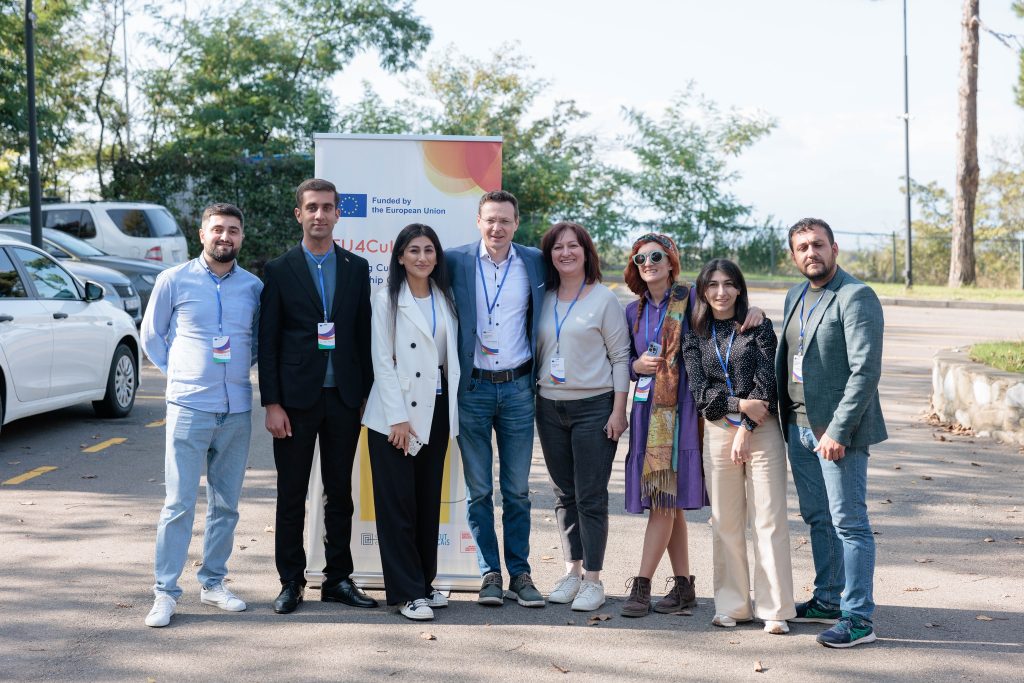WE ARE OUR MOUNTAINS: HOW TO ENLIST CULTURE FOR THE DEVELOPMENT OF ARMENIA’S REGIONAL COMMUNITIES
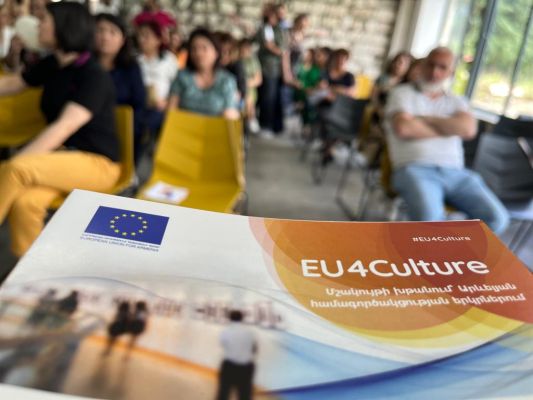
A fundamental trait of a society is culture which defines and guides literally all aspects of human life. Yet its practical value and possibilities of putting it to the best service for the community are often neglected and ignored. Meanwhile, a keen glance at the untapped potential of culture in the sustainable development of a country can work wonders.
According to UNESCO, as of 2022, the cultural sector accounts for 3.1 percent of the global gross domestic product (GDP) while creating 6.2 percent of all employment and hiring more young people than any other sector.
With its rich cultural heritage, Armenia certainly has much to do in this sector. However, precise strategies with clear objectives and creative approaches are needed to get the formerly largely untapped potential into the best service.
Since 2021, the EU has developed a project for Eastern Partnership countries (Belarus, Ukraine, Moldova, Armenia, Georgia, and Azerbaijan) to create and implement cultural development strategies to translate the cultural potential of smaller regional cities into economic opportunities. This mission of turning culture into an engine for the economy triggered the creation of the EU4Culture project. Under the project, several townships in each country were expected to develop strategies reflecting the nexus of culture with business while implementing a selected one funded by the EU4Culture.
Several communities developed strategies for the cultural-economic development of individual townships, and three of them, including Ijevan and the communities of Charentsavan and Sevan, were selected for funding by the EU4Culture. Under the projects, each was awarded a EUR 30,000 grant for the activities aimed at developing those strategies.
Marine Karoyan, the EU4Culture National Coordinator for Armenia, shares her impressions on the process. “The whole project is about public-private partnership, and we saw how problematic that interaction sometimes is,” she says. Yet, in Armenia, the Ijevan community’s case proved successful. The culture development strategy in the enlarged township (which includes 18 smaller communities besides the city itself) was awarded the grant for its implementation. The strategy, called “We Are Our Mountains” launched in March of this year and is expected to be fully implemented by August 2024.
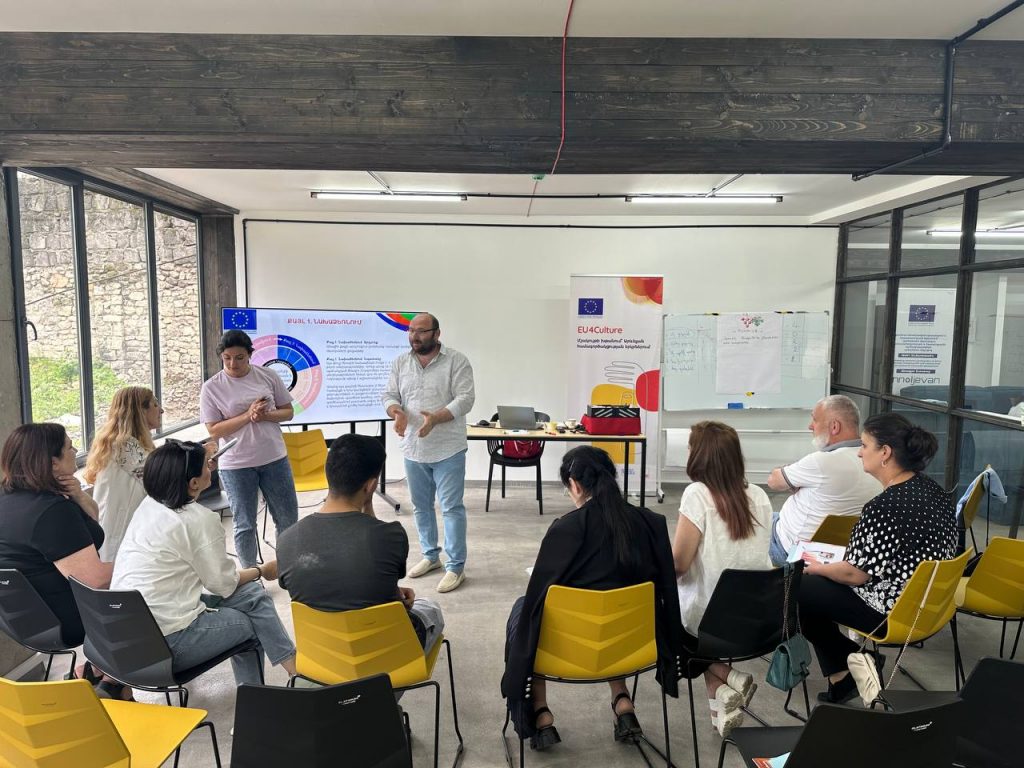
The strategy development was quite intense: the groups in charge of that task conducted multiple meetings with people from various settlements in the community, held workshops, and “idea harvest” meetings to generate and discuss concepts and steps potentially fit for the strategy. They have also mapped cultural and historical sites, assessed all potential cultural assets of the community, and identified artists, artisans, and all possible operators acting within the community. Organizing and holding such events and activities is not an easy task, the EU4Culture National Coordinator says. There are undoubtedly different interest groups and factions, the local government, NGOs, artists, tourism operators, businesses, etc., which can have different and often clashing interests and have been settled through lots of discussions and efforts to find common ground and overarching interests.
Strategy discussions helped create horizontal ties within communities, especially if we take into consideration the fact that some of them, like in the case of Ijevan, are recently enlarged, and it takes time for the interaction between the old members of the township and the new ones to be made smooth.
Apart from discussions inside communities, there were also intercommunity meetings involving adjacent townships, and this is precisely the type of horizontal relations that many entities in Armenia need. “Although our projects are geared towards culture, this networking pattern can prove to be universally useful,” Marine says. In fact, EU4Culture will continue to hold networking events and training sessions involving Ijevan, the grant holder for the strategy implementation, and two other cities that have successfully developed their strategies for culture development. With their developed strategies adapted, or even without any amendments, they can apply for additional funding sources and implement them.
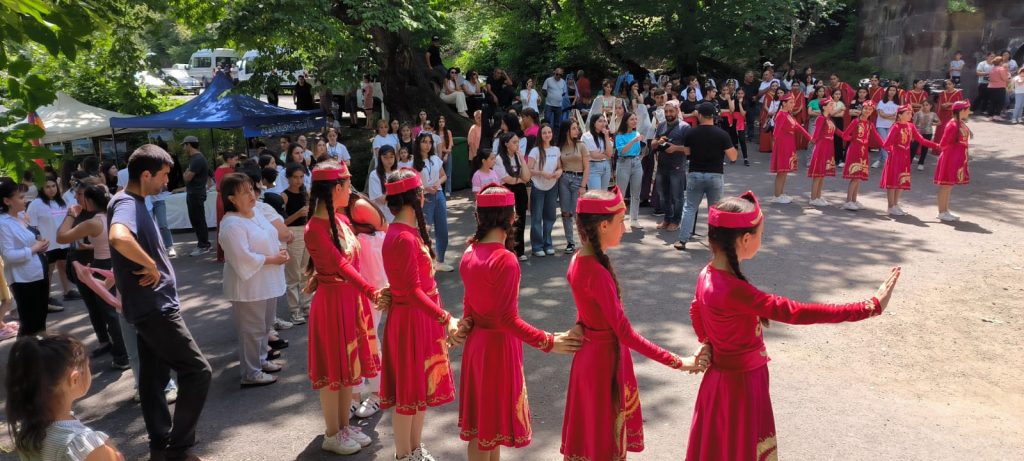
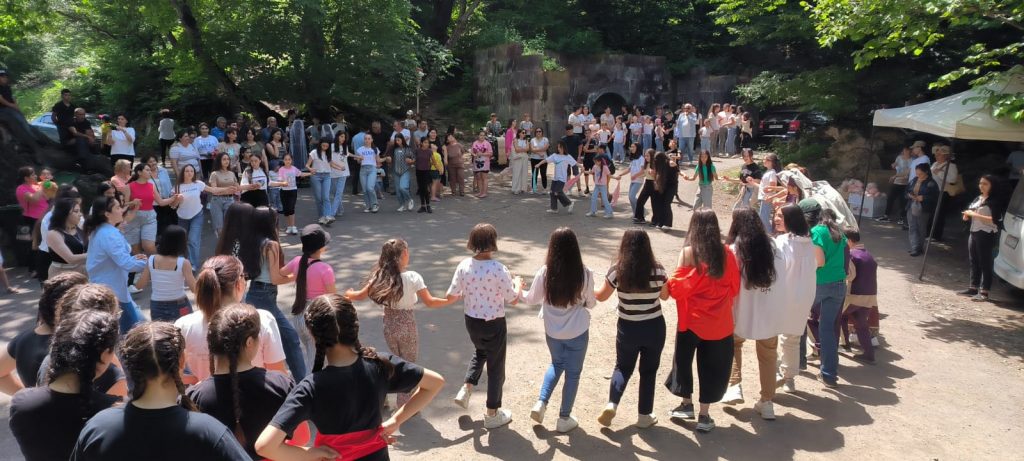
Meanwhile, the Ijevan township and the Urban Foundation implementing the strategy have held a three-day-long festival in the city and adjacent localities as part of implementing their strategy. Some places were linked to the famous Soviet Armenian film “We Are Our Mountains” (which is precisely the name of the strategy, too). “It became a truly popular feast, something the locals hadn’t seen for ages. They felt that as people, they were appreciated, as well as their communities, their villages, and local specificities. They come to realize the cultural richness they possess, and they participate readily in those events with lots of inspiration,” Marine shares her impressions on the festival held in the summer of 2023.
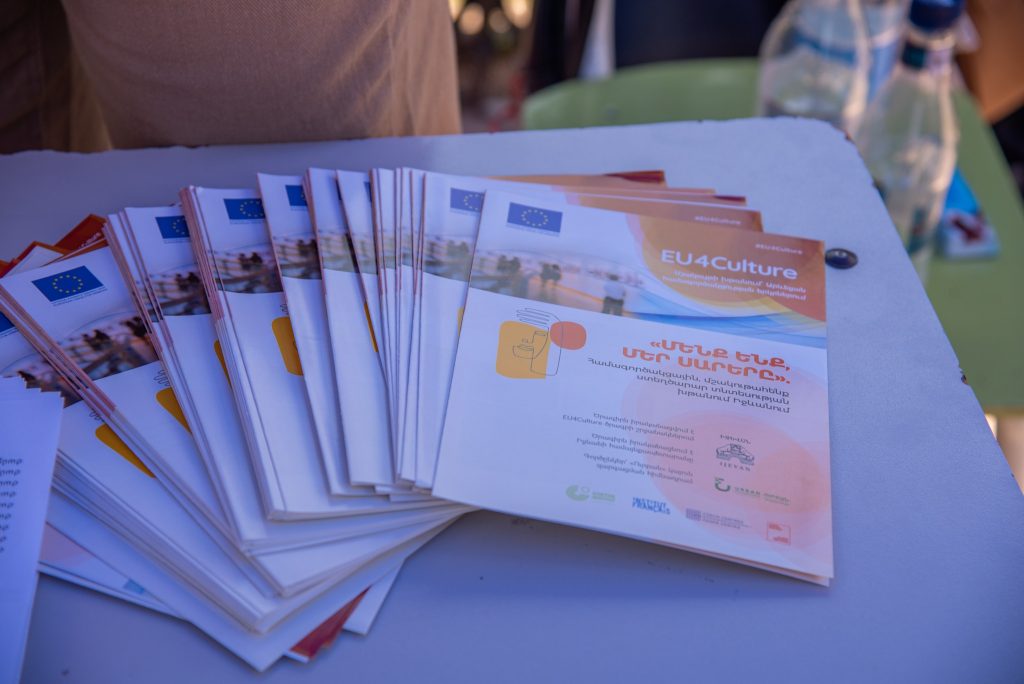
Apart from festivals, which are essential to demonstrate the local cultural richness and their potential for business investments, the strategy implementation involves capacity building and education activities, in the meantime having announced several subgrants for local entities. “There were quite a number of amazing ideas among the grant proposals submitted,” Marine notes, adding that the selection process has been challenging in that respect.
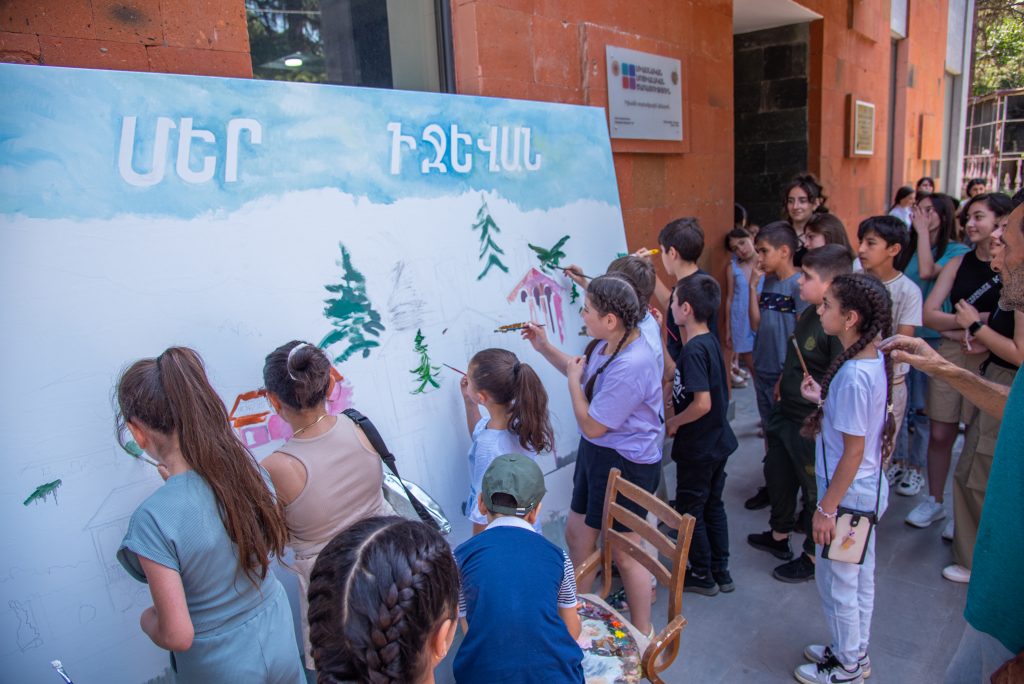
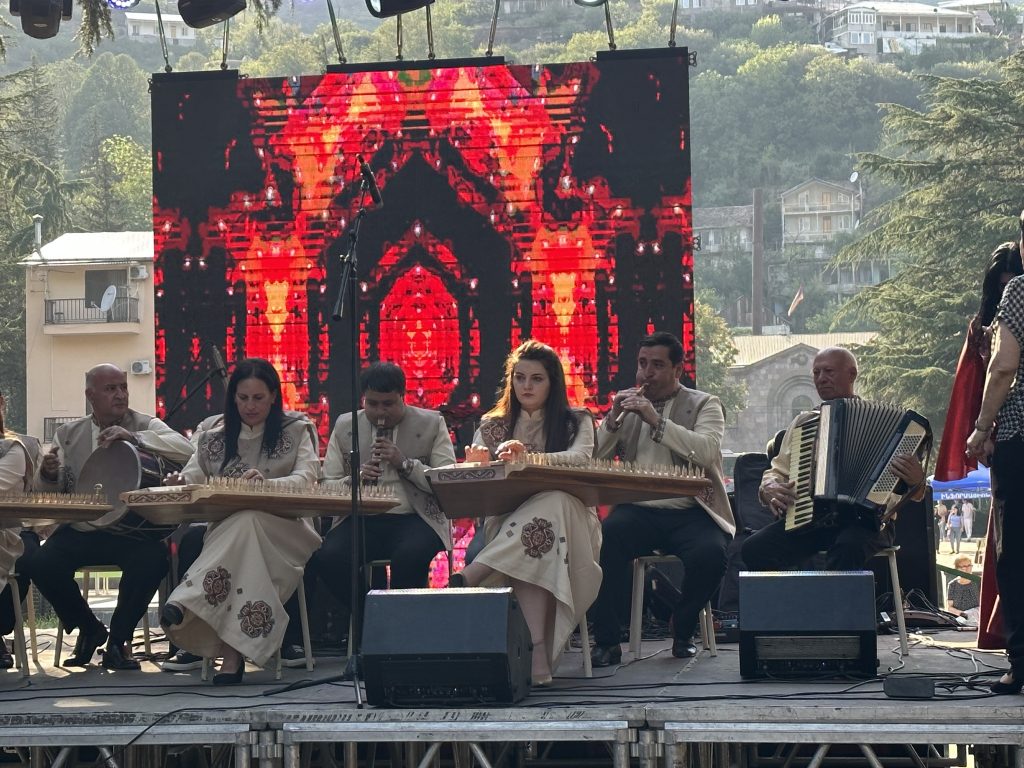
One of the innovative projects that have just been selected for funding is submitted by an Ijevan-based NGO that is managing a project funded by the EU4Culture and InnoIjevan – another EU-funded project in Armenia. They plan to host ten-month-long basic 3D animation trainings, which a Gyumri-based organization will hold. Thus, it will involve multiple partners from different quarters. This shows how an NGO can link up multiple local and international parties around a common goal of developing a community in Armenia.
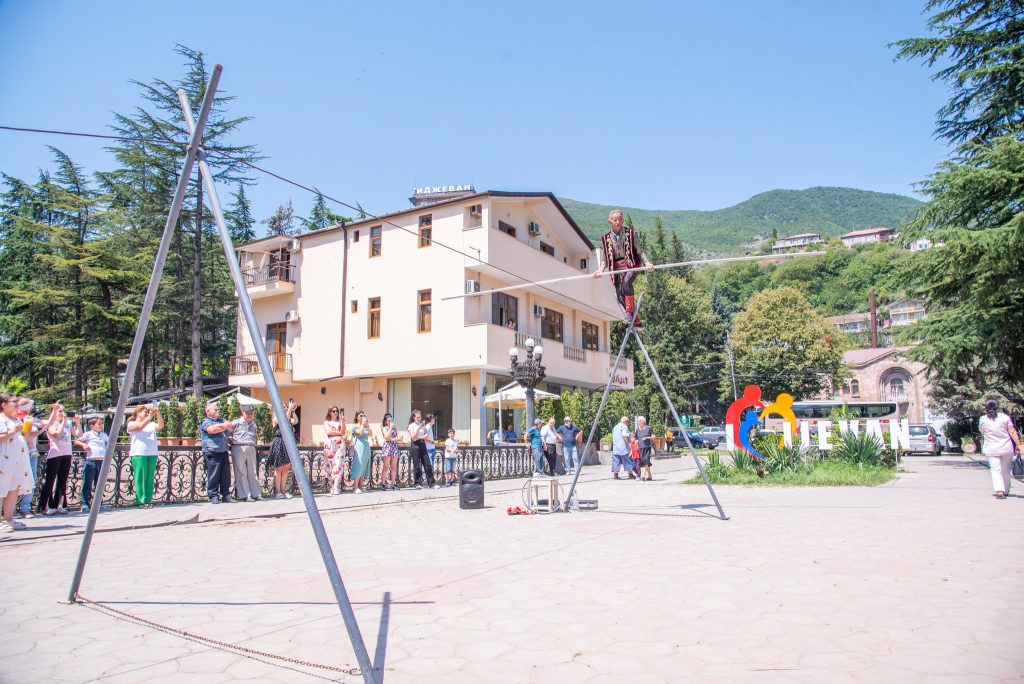
The Ijevan community can become a focus of interaction between EU-funded and other projects, creating synergy. For instance, the LEAD (Local Empowerment of Actors for Development) for Lori and Tavush, Mayors for Tavush, InnoIjevan, and EU4Business are all currently active in the community, and this is a brilliant opportunity to harmonize their efforts in a single locality.
The success of the Ijevan experiment is important. Equally important is that different townships ventured to map their cultural assets and develop an articulate project for the future. This experience can and is becoming inspiring for various townships across Armenia and even the country’s government. This is an undoubted success and needs to be encouraged as a step towards a sustainable and more human-centered economy.
